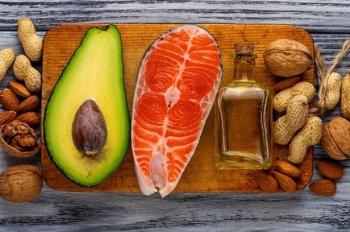National Heart Health Month
 February is heart health month due to the fact that about 2,300 Americans
die each day from cardiovascular disease. Many patients do not realize
that one of the leading complications of diabetes is cardiovascular disease,
but you can work with your physician as well as your diabetes care team
to prevent heart disease. Here are a few tips to prevent the devastation
that can result from heart disease:
February is heart health month due to the fact that about 2,300 Americans
die each day from cardiovascular disease. Many patients do not realize
that one of the leading complications of diabetes is cardiovascular disease,
but you can work with your physician as well as your diabetes care team
to prevent heart disease. Here are a few tips to prevent the devastation
that can result from heart disease:
- Go for a walk. Cardiovascular fitness can help prevent high cholesterol, high blood pressure, provide better blood glucose readings and aid in having a stronger heart. It is recommended each American aim for 150 minutes minimum of physical activity per week.
- Have better blood sugars! According to the American Diabetes Association fasting blood glucose levels should be between 70-130 and 2 hour post meal glucose readings should be less than 180. Keeping good blood sugar values will lead to less plaque and damage to your arteries.
- Avoid fried foods and processed meats. Foods that are fried can lead to increased intake of saturated fats, trans fats and weight gain. Bologna, salami, pepperoni, bacon, sausage, ribs, hot dogs and chicken wings can also lead to increased fat in the blood leading to high cholesterol and triglycerides.
- Limit refined carbohydrates. Refined starches such as white bread, pasta, rice, bagels, ice cream, cake, cookies, pie, candy can lead to elevated triglycerides increasing the risk of heart disease.
To learn more about diabetes, health and weight loss call 561-659-6336 ext 8012 to schedule an appointment with a certified diabetes educator today. Please enjoy our February 2018 Living Well with Diabetes Newsletter.
Heart Healthy Food Choices
By: Marisela Bayona, RD, LD/N
 March is almost here!! Wow! That only means we need to stay on track with
making healthy choices because time will pass on by…and if you
haven’t started, don’t worry, it’s not too late.
March is almost here!! Wow! That only means we need to stay on track with
making healthy choices because time will pass on by…and if you
haven’t started, don’t worry, it’s not too late.
Let’s go!
As you may or may not know, February is Hearth Health Month! So much to say on that, but for fun lets indulge on foods that promote “heart health”.
Omega 3 and omega 6 are essential fatty acids, meaning our body cannot produce it; therefore, we need to get it from the foods we eat (that’s the fun part).
Fats are essential to your health because it supports a number of functions, but too much fat can lead to excess calories. Excess calories promote weight gain which may lead to further health conditions such as cardiovascular disease, and diabetes.
In ancient times our ancestors consumed a diet with an omega 3 to omega 6 ratios of 1:1 equal parts. Presently, most Americans consume a diet substantially higher in omega 6. So why is this a concern? The omega 3 promotes an anti-inflammatory response where as omega 6 promote a pro-inflammatory response. Therefore, a diet with a ratio substantially high in omega 6 leaves the body’s pathway unbalanced with higher levels of inflammatory properties. Chronic inflammation has been linked to heart disease and diabetes. So let’s work together on adding a balance of healthy fats to your daily diet.
The American Heart Association recommends eating at least 2 servings of fish a week. Each serving is 3.5 oz cooked. Fish is a good source of omega 3 which benefit the heart of healthy people, and those at high risk or who have cardiovascular disease. The American Heart Association also shows that omega 3 fatty acids decrease the risk of arrhythmias which can lead to sudden death.
Some of the foods high in omega 3 include: salmon, mackerel, tuna (fresh), herring, flaxseeds, flaxseed oil, cod liver oil, chia seeds, dark green leafy vegetables (kale, spinach, collards, mustard greens), avocado, and broccoli. There are also some foods fortified with omega 3 fatty acids, such as eggs, margarine, juice, milk, yogurt, bread, cereal, pasta, and oatmeal.
Foods with omega 6 include: corn oil, canola oil, sunflower oil, safflower oil, soybean oil, shortening, processed pork, salad dressings, walnuts, pine nuts, almonds, peanuts, eggs and dairy. The vegetable oils that contain omega 6 are mostly used in the making of fast foods, cookies, cakes, snacks, and crackers – these common foods are consumed in excess in the Americans diet leading to substantially higher omega 6 intake.
In general, omega 6 and omega 3 fatty acids are both heart healthy for you and should be balanced in our diets. It’s recommended to cut down on foods that are high in saturated and Trans fat as well as processed and fast foods. At home you can use olive oil for cooking and for salad dressings. You should eat more foods high in omega 3 fatty acids such as fish, flaxseeds, walnuts, or omega 3-fortified eggs and try to consume omega 6 in moderation only. Your mind and your body will thank you!
Want to learn how to prepare delicious meals for weight loss?

hen come to our Healthy Meal Planning Classes!
At 3 Convenient Locations!
- West Palm Beach Location:
Temple Israel
1901 N. Flagler Drive
West Palm Beach FL, 33401
Tuesday March 13th 10am-12pm
Parking is located on Pine Street behind the Temple. Please buzz in to alert staff for diabetes refresher class. Classroom is located in the Program Room.
- Boynton Beach Location:
Brookdale Living Facility 8220 Jog Rd.
Boynton Beach, FL 33472
Wednesday April 18th 10am-12pm
- Jupiter Location:
Well tower Building 550 Heritage Drive, Suite 150
Jupiter, FL 33458
Wednesday March 14th 10am-12pm
Will provide Healthy Snacks!
**May bring one guest free of charge!
If interested attending this program please contact our scheduling department at (561) 659-6336 Extension 8001 today!
At Healthy Living with Diabetes we want to ensure that you are satisfied with all services received. We also would like your input on educational workshops that you would like us to offer, information you would like to read about in Healthy Living with Diabetes Monthly or feedback on any workshop that you may have attended. You can contact the director of education personally by email jcook@PBDES.COM or leave a message at (561) 659-6336 ext. 8012. We would love to hear from you!
Check us out on the web!
- www.palmbeachdiabetes.com
- www.facebook.com/pbdeseducation
- www.twitter.com/WpbDiabetes

